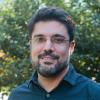The article opens new analytical pathways to address migrants’ pursuit of a “better life”, and the pervasive comparative dimension of migration aspirations, decision-making processes, and experiences. It illustrates the importance of a more explicit and systematic reflection on “comparison” in studies of migration, providing compelling evidence that highlights its manifold functions, values, and effects in a range of migratory situations. The aim is to inspire future work on how comparison functions and becomes entangled in the transnational lives of people on the move, shaping, constraining, and transforming their pursuit of a “better life”. The article also shows the interest of, and provides analytical tools for, a more profound reflection on the entanglements, resonances, and frictions between how scholars of migration deploy comparison in research, and why, how, and to what effect people-on-the-move compare.
Abstract of the article
Moving beyond comparison as a method that juxtaposes community-based case studies, this article explores how migrants with different backgrounds and trajectories themselves deploy comparison in their everyday lives and decision-making. To do so, it examines Cuban and Ecuadorian migrants' comparative appraisal of different places, values, and visions of a "better life", shedding new light on the motives, stakes, and effects of their endeavors. The proposed approach advances understandings of how migrants cope with the dominant comparative scripts and hierarchies that migration activates, notably by either conforming to, subverting, or unraveling them. Also highlighted are comparison's entanglements with questions of choice, belonging, and its experiential and emotional effects, including the suffering it elicits. A multi-dimensional exploration of how comparison plays out among migrants opens research avenues related to transnational living and people's pursuits of a "better life", while also raising ethical and epistemological questions for comparative research on migration and beyond.
You can access the full article here.






